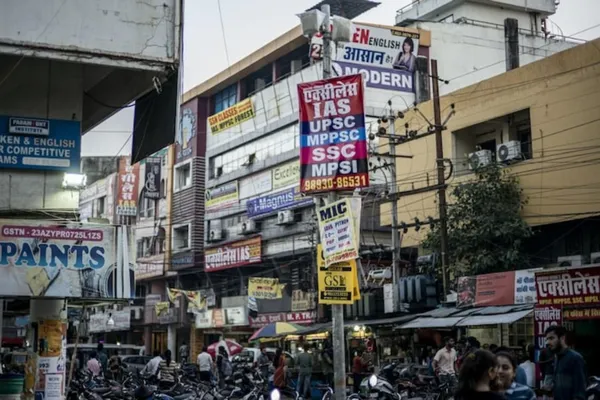In response to concerns regarding unregulated private coaching centres, the Ministry of Education has released comprehensive guidelines for the registration and regulation of coaching centres across the country.
- The move aims to address issues related to excessive fees, stress on students, and the lack of mental health support.
Key Guidelines for Private Coaching Centres:
Definition of Coaching
- The guidelines define coaching as tuition, instruction, or guidance in any branch of learning to more than 50 students.
- It excludes activities such as counselling, sports, dance, theatre, and other creative pursuits.
Registration and Eligibility
- Mandatory Registration: Coaching institutes offering training for professional courses must be registered.
- Age Restriction: Students below 16 years of age cannot be enrolled in coaching centres.
- Enrolment is allowed only after the completion of secondary school examination.
- Fee Regulation: Institutes are prohibited from charging exorbitant fees, ensuring fairness and reasonableness.
- Refunds are mandatory for students leaving courses mid-way.
Psychological and Mental Health Support
- Integral Support: Coaching centres must provide psychological and mental health support to students.
- Intervention Mechanism: Immediate intervention mechanisms for students in distress should be established.
- Counseling Services: Involvement of counselors and experienced psychologists for resolving mental stress and depression.
Safety and Infrastructure
- Fire and Building Safety: Centres must conform to fire safety and building safety norms.
- Space and Infrastructure: Adequate space, ventilation, lighting, and separate toilets are mandatory.
Code of Conduct and Penalties
- Code of Conduct: Institutes must adhere to a code of conduct, including tutors having a minimum graduation qualification.
- Penalties: Violations may result in penalties, starting from ₹25,000 for the first offense, ₹1 lakh for the second, and revocation of registration for subsequent offenses.
Academic Practices
- Working Hours: Coaching classes cannot be conducted during students’ school or institutional hours.
- Curriculum: The curriculum should be spaced out, with a maximum of 5 hours per day, and weekly offs for both students and tutors.
- Assessment: No assessment tests on the day after the weekly off.
- Website Requirement: Coaching centres are mandated to have a website with updated details about tutor qualifications, courses, curriculum, duration of completion, hostel facilities, and fees.
Career Guidance and Awareness
- Career Options: Centres must provide information about various career options to reduce stress among students.
- Mock Tests: Conducting mock tests to assess students’ capabilities and set realistic expectations.
Complaint Mechanism
- Redressal: A complaint mechanism is established, allowing students, parents, or tutors to file complaints for resolution within 30 days.
What was the need for guidelines?
- Growing number of unregulated private coaching centers.
- Charging excess fees and causing undue stress on students.
- Instances of student suicides linked to stress.
Other key facts:
- Education falls under the Concurrent List of the Constitution.
- Several states like Bihar, Goa, Uttar Pradesh, Karnataka, and Manipur already have frameworks to regulate private coaching.
Ref: Source
| UPSC IAS Preparation Resources | |
| Current Affairs Analysis | Topperspedia |
| GS Shots | Simply Explained |
| Daily Flash Cards | Daily Quiz |



